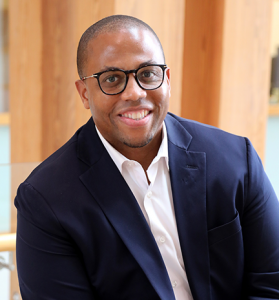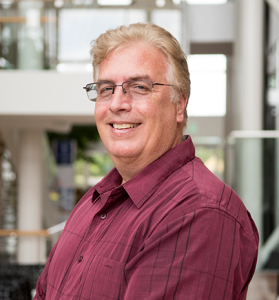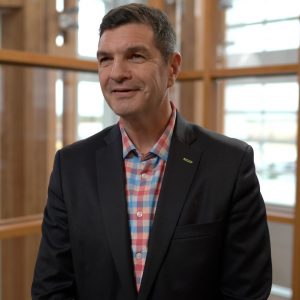
 Since the completion of the human genome in 2003, scientists continue to discover the genetic cause of many diseases. We have seen breakthroughs in the diagnosis and treatment of those diseases, illuminating the true potential of genomics in healthcare.
Since the completion of the human genome in 2003, scientists continue to discover the genetic cause of many diseases. We have seen breakthroughs in the diagnosis and treatment of those diseases, illuminating the true potential of genomics in healthcare.
However, genomic-informed healthcare is not available or equally beneficial for all people. There are many inequities in access to genetic testing and genetic research based on racial and socioeconomic status, to name a few.
Fortunately, many programs and initiatives are working to break down the barriers keeping diverse populations from engaging in and benefitting from genetic testing and research. Listen to Tiny Expeditions, Season 3, Episode 4, “Accessing genetic testing: who’s in and who’s out?” to learn about the lack of diversity in genetic research and how scientists and bioethicists are trying to ensure an equal playing field so that everyone can make the most of genetic technology.
Behind the Scenes

Darrell Ezell, PhD (pictured left) is the Director of Diversity, Equity, and Inclusion at the HudsonAlpha Institute for Biotechnology. Under Dr. Ezell’s leadership, the DEI office works to ensure that both the research being done at HudsonAlpha and the advancements and outcomes of that research are inclusive of and available to all people.
Many of the initiatives that Dr. Ezell supports aim to provide educational resources to HudsonAlpha employees, academic partners, community stakeholders, and the general public to increase their knowledge concerning genomic health, health disparity, and improved access for minority populations.
Several other initiatives aim to increase minority involvement and enrollment in genetic testing programs. The goal of HudsonAlpha’s Information is Power initiative is to make genetic screening more accessible and more affordable to more people across Alabama. The initiative recently expanded its reach beyond North Alabama to individuals throughout the state. Information is Power forged collaborations with #NowIncluded and Montgomery area physicians to increase their reach to more medically underserved areas throughout the state.
To learn more about HudsonAlpha’s Office of Diversity, Equity, and Inclusion, visit its website here.

Thomas May, PhD, is a bioethicist at Washington State University and HudsonAlpha Institute for Biotechnology. He is also a familiar voice on the podcast. We are lucky that Dr. May could serve as our expert voice for our two bioethics episodes.
Dr. May is passionate about increasing diversity in genetic research and sharing the wealth of knowledge gained from genetic information with everyone. One way he does this is through his work with the Alabama Genomic Health Initiative (AGHI). The goal of AGHI is to recruit a diverse group of participants from every county in Alabama and provide genomic analysis and interpretation to this group free of charge. As of 2021, the program has recruited participants from all 67 Alabama counties.
Bioethicists, including Dr. May, play an important role in AGHI, ensuring the highest standards of ethical review and practices in all initiative areas. This includes a full review of all protocols to ensure high levels of confidentiality and transparency to participants regarding the benefits and risks associated with participating in AGHI. The bioethics team also helps understand the concerns individuals may have regarding participation in genetic testing and identify the best ways to address the concerns of different populations.

Shawn Terry is the Secretary of Health for the Muscogee (Creek) Nation. Muscogee (Creek) Nation is the fourth largest federally recognized tribe in the United States, with more than 90,000 citizens. It is headquartered in Okmulgee, Oklahoma.
In 2020, HudsonAlpha, Muscogee (Creek) Nation, and the HudsonAlpha Health Alliance began collaborating to bring health and education programs focusing on genetics and genomics to the tribe. As Secretary Terry described during the episode, the genomic health program involves implementing comprehensive clinical genetic testing for high-risk patients receiving care at the Muscogee Creek Nation Department of Health. Pharmacogenomic testing will be offered to those patients so their doctors can begin prescribing the appropriate dose and type of medications to most effectively benefit the patients.
The collaboration will also provide Muscogee (Creek) Nation students and educators access to the latest in genomic science educational tools and classroom support, as well as opportunities to explore careers in biotechnology and genomic medicine through a variety of workforce programs.
To read more about the collaboration, click here.
Season 3 of Tiny Expeditions is made possible through the support of our sponsors:

Sarah Sharman 00:00
Season Three of Tiny Expeditions is made possible through the support of our sponsor EBSCO Information Services, the leading provider of online research content search technologies and workflow tools, serving public libraries, schools, academic institutions, corporations, and medical institutions around the world. Proudly delivering information access for researchers at all levels online at EBSCO.com. That’s E-B-S-C-O dot com.
Darrell Ezell 00:33
DNA really provides great insight into our human health. It really maps the direction of the past, the future, but most importantly, the present. The reality is, is that we have to figure out how to reduce the barriers to get this information to populations around the world.
Sarah Sharman 01:01
Unraveling the mysteries of the human genome has already led to breakthroughs in the diagnosis and treatment of many diseases, like diabetes, heart disease, and cancer. We are starting to unlock the true potential of genomics in health care, from filling in your family tree to diagnosing disease to helping your doctor prescribe the appropriate medication for you. Genetics and genomics are poised to change healthcare as we know it.
Chris Powell 01:25
Of course, the underlying assumption is that everyone has access to genomics-informed health care. We know that this is simply not the case. Think about it. New medicines and treatments that come on the market. They’re great. But what if you don’t have access to them? Or a deeper question? What if the medication was developed using data that doesn’t represent your ethnic background? While we want to think that we are in a society that has progressed to the point where everyone has equal access to genetic testing and personalized health care, the truth is that we still have a very long way to go.
Sarah Sharman 01:59
I’m Dr. Sarah Sharman here to help you understand the science.
Chris Powell 02:02
And I’m Chris Powell. I’ll be your storytelling guide for today’s episode. Today, we’re joined by a familiar voice. Dr. Tom May, as well as a new voice to you Dr. Darrell Ezell.
Darrell Ezell 02:13
There is not an equal bridge for all to access genetic testing and genomic health because access to equitable health care in the United States does not exist.
Chris Powell 02:22
Dr. Darrell Ezell is the Director of Diversity, Equity and Inclusion at the HudsonAlpha Institute for Biotechnology.
Darrell Ezell 02:30
Disparities in healthcare quality and access to genetic testing and trials are generally impacted by three things. One, lack of disease education, which is a major barrier to recruitment. If I don’t know about it, why would I be interested in genetic testing and also genomic health. The second, available transportation to testing sites. And this is very important when we’re focusing on persons from lower socioeconomic communities. And the third area is patients and family concerns about results. This is one of the reasons why social workers are so important to this process because if I find out that I test positive for prostate, breast, or ovarian cancer, what am I to do with this information? So, these are some of the major challenges on the front end.
Chris Powell 03:24
To further complicate things, the practical barriers that many face are on top of the historical barriers that are not easily forgotten.
Darrell Ezell 03:32
Some of the historical reasons include key factors such as past legacies of medical mistreatment, historical pain, suspicion, and even contemporary discrimination in the healthcare system. Some of the discoveries of modern medicine as gynecology, the untreatment of men in Tuskegee, Alabama, with syphilis, or even the Hela cell research and discoveries from Henrietta Lacks after her death that benefited white patients at Johns Hopkins and beyond, contributes to this hesitation.
Sarah Sharman 04:06
Henrietta Lacks was a black woman who went to John Hopkins Hospital for medical care in the early 1950s and was diagnosed with cervical cancer there. The very doctors that Mrs. Lacks entrusted to diagnose and treat her cancer collected her cancer cells without consent and went on to financially benefit from the extraordinary cells that could reproduce almost indefinitely. The doctors took advantage of the fact that they were one of the few hospitals that treated poor black Americans at the time and unethically collected samples from hundreds of patients.
Darrell Ezell 04:38
Well, the missing dimension to genetic testing and genomic health is diversity. The Genomic Wide Association Studies database indicates that the majority ancestor distribution of individuals in the global bank is white European, with BIPOC – Black Indigenous and People of Color – representing a very small percent. If there’s not equal representation across the board, what does this mean for the production of medication? What does it mean for, you know, the research in general. Is the research skewed with regards to the data, because it’s leaning more so towards white European, as opposed to a fair balance across the board? The same thing with regards to one of our colleagues, Tom May, he writes and talks about is the benefit of the medicine, benefit of equitable health care, when the database is populated equally. So that’s something that we want to continue to take serious. That’s one of the reasons why we have to keep advocating for one genetic testing, but two increased diversity in genomic health moving forward.
Chris Powell 05:51
So we’ve established the need for equity in healthcare and diversity in genomic research data. The big question is, how do we get there? How do we start overcoming these barriers?
Darrell Ezell 06:03
First, leading with female and minority health care workers and physicians. If you can see someone who is a member of the healthcare field of the medical field that looks like you, that might be sensitive to your health needs, you have a better opportunity in moving that person forward, for example, with genetic testing or understanding better genomic health. The second area of the work that they’re doing which is so beneficial, is building trust through awareness. Each are committed to identifying key community stakeholders. And just a little bit about identifying key community stakeholders. Going through the Rolodex and establishing relationships with these community stakeholders. So, in a sense, teaching the teacher or teaching the trainer with workshops, where these trainers go back, and they engage the community, which really supports evaluating, educating, and recruiting participants. And lastly, which is extremely important with the work that they’re doing, ensuring ethics. Making sure that ethics is at the forefront and center of all activities, executing ethical activities that result in transparent transparency, honesty, respect confidentiality, and fairness.
Chris Powell 07:27
So, to this point, Sarah, we’ve been talking about inequities in people groups. And I think maybe one of the temptations we have is to kind of lump everyone who may have a challenge of inequitable access to health care. Maybe we lump all of those into a single category.
Sarah Sharman 07:44
I agree. And some of us may have an image that pops in our head of a specific ethnic group or a socio-economic class that fits this bill. But it’s not a one size fits all problem.
Chris Powell 07:55
So maybe we need to break this apart a little bit and say that within the group that are included in inequitable access to health care, there are a lot of subgroups. And there’s a whole lot of different reasons, some of which we’ve already explored, of why people may not have access to health care or genomic testing,
Sarah Sharman 08:13
I think we need to make sure to mention people living in rural areas that often have to drive over an hour to a hospital. And those with economic challenges, like single parents who can’t afford babysitters to go to the doctor.
Chris Powell 08:25
Yeah, and one of the things that we’ve already mentioned is transportation. I mean, if you don’t have transportation to a doctor or hospital, you probably don’t have transportation to a genetic counselor or to genetic testing. Anxiety is also a very real barrier to health care for many folks. And sometimes that anxiety comes from mental illness. Sometimes it comes from the mistrust in the medical system that we talked about earlier. And one thing that we cannot do is to dismiss this medical distrust. I mean, this is based on a very real series of events that has happened. And it’s not something that we can just sweep under the rug and say, let’s just get over. It’s a very real barrier.
Sarah Sharman 09:05
Luckily, there are several programs and initiatives that are trying to break through these barriers, regain trust, and ensure equal access to healthcare and the benefits of genomic technology.
Thomas May 09:16
While the Alabama Genomic Health Initiative, AGHI, has really put a lot of effort in trying to make sure that the participants in AGHI are reflective of the Alabama population itself.
Sarah Sharman 09:28
And that’s the voice of Dr. Thomas May, a Hudson Alpha faculty investigator who you heard from on Episode Two.
Thomas May 09:35
Nationally, if we look at what’s called GWAS studies, we know that somewhere around 80 to 85% of participants are of European ancestry. You know very few minorities are participating by and large. And one of the things with AGHI was a concern to make sure that our percentage of minorities reflected the population of Alabama. So, a lot of effort was put into making sure that we did extensive outreach to different communities, to doing focus groups that would take seriously the concerns and identify and address the concerns of different populations. What can be done to have outreach in a way that things like pop-up clinics, where we could go to the populations that we wanted to recruit, rather than trying to get everybody has to come to a standardized place. So, all of these efforts were made, and it was extremely successful. In fact, I believe that the minority representation within AGHI very slightly exceeds the minority percentage in Alabama as a whole. So, it’s been very successful, and I think is really serving as a model for some of these recruitment efforts nationally.
Sarah Sharman 11:05
As of 2021, more than 7000 Alabamians representing all 67 counties have been enrolled in AGHI. Alabama has many rural counties, so including citizens from these counties is important for increasing diversity. In addition to helping create a representative Alabama genetic data set, the participants can also learn important information about their genetic health.
Thomas May 11:28
There are several arms of AGHI. There is an arm that’s doing whole genome sequencing of individuals, especially children who are in a diagnostic odyssey, we call it. We just don’t know what’s wrong with them and seeing if genetics can help to understand why certain conditions are manifesting.
Thomas May 11:47
There’s what’s called the population cohort, which is sort of a screening program that looks at what used to be called the ACMG, the American College of Medical Genomics and Genetics, 59 genes that are associated with conditions that are treatable, or actionable, as they’re called in genomics community. Right. And these individuals, oftentimes, I think, will use that information if a risk is identified something like a BRCA variant that might be associated with increased risk of breast cancer, that will be used for better monitoring, and testing. So, there’s things that you could do, you know, most women might receive a mammogram, if you have a 20%, or more increased risk of breast cancer, there’s often employed an MRI adjunct, which is more sensitive for identifying breast cancer at an earlier stage. So that can be done. As a result, that would be an example of a clinical application of this genomic testing. All of the participants in genomic in the Alabama Genomic Health Initiative are given the option for also having their genetic material entered into a biobank. So that we can use that for research studies in the future, it’s not required, but it is available.
Chris Powell 13:17
Different people groups face different health challenges. Now, I know we’re all aware of this, but we must acknowledge that this in itself becomes another barrier to healthcare. The Muscogee Creek Nation recognized that there were some very specific healthcare challenges faced by their citizens. And they’ve turned to genomic testing through a partnership with HudsonAlpha to help counter these challenges.
Shawn Terry 13:37
So genomic testing became something we were interested in a couple of years ago.
Sarah Sharman 13:45
That’s the voice of Shawn Terry, Secretary of Health for the Muskogee Creek Nation.
Shawn Terry 13:50
When we first heard the story of what HudsonAlpha was doing with genomic testing, we traveled to Huntsville to kind of see for ourselves what all of this was about. And when we first looked at pharmacogenomics, the tribe and our health system has given out gallons and gallons of insulin swimming pools full of pills, and we’ve never cured a single disease. As the Secretary of Health for the fourth largest tribe in the country, I know that there has to be a better way for us than to keep handing out pills and medicines and that the future of medicine is really in precision pharmacogenomics. We think that there’s not a one size fits all prescription for everyone. And I think that all medicine has to be tailored to the individual. And that’s what we’re so excited about for this project.
Shawn Terry 14:59
The Native American population in our tribe and other tribes, we have the highest rates of heart disease, diabetes, cancer of anyone in the country. There’s no explanation. And no one’s been able to give an explanation as to why that is. How is it that two people can live in the same communities eating the same food, going to the same schools, going to the same churches, and yet, they have two significantly different rates of disease. We believe that HudsonAlpha, and the pharmacogenomics program, and genetic medicine is going to be the explanation as to why you’re having two races of people living in the same community that have significantly different outcomes. And so that’s really why we’re doing this project. That’s why we partnered with HudsonAlpha. And that’s what we’re excited is that we think that it really comes down to tailoring medicine to the individual.
Shawn Terry 16:18
The Muscogee Creek Nation Department of Health has six clinics, about 50 primary care providers, four hospitals, and about 50,000 patients. And so we’re going to be taking Muskogee Creek Nation citizens and our patients who would be labeled as high-risk patients, or patients that are non-compliant, or patients that are in some sort of high-risk category. And we want to give them the opportunity to be able to have their genomic profile evaluated to see if there are medications that their body is having trouble metabolizing. And then, we will be able to educate our primary care providers on what’s exactly happening with this patient, and we can adjust their medications so that we can hopefully get all of those disease states under control.
Darrell Ezell 17:23
This is a signal in the right direction as it relates to the history of Native people here in the United States of America and also colonization as well. But when the minority or underserved population is able to partner and drive the conversation around health and health outcomes, you build a new relationship. And it goes back to my point around establishing a relationship from grassroots relationships from the ground up, in the sense that you’re not dictating terms, you’re not dictating the conversation with regards to someone else’s health, but you’re providing education to the general population. And in addition to that, that information, for example, that the Muskogee Creek is receiving, they can modify it to work best within their community, they can replicate it for other Native American communities, you’re able to establish bridges, and what I like to call crossroads of trust with other communities and nations in this particular case, that will benefit not only HudsonAlpha, but also the indigenous community here in this country.
Darrell Ezell 18:43
DNA really provides great insight into our human health. It really maps the direction of the past, the future, but most importantly, the present. The reality is, is that we have to figure out how to reduce the barriers to get this information to populations around the world. Reducing those barriers means working with institutions, working with systems, and working with individuals to ensure that the constrictions that we witnessed over the years no longer exist.
Chris Powell 19:32
Thank you for joining us for part two of our tiny expedition into bioethics. We hope you find yourself enlightened by this discussion on the ethics of inequitable access to health care.
Sarah Sharman 19:42
Next time, we’re talking about cancer, and the role genomics plays in diagnosing and treating these devastating diseases.
Chris Powell 19:49
Tiny Expeditions is a podcast about genetics, DNA, and inheritance from the HudsonAlpha Institute for Biotechnology. We’re a nonprofit research institution in Huntsville, Alabama.
Sarah Sharman 19:59
We’ve got a campus suave scientists doing public research alongside companies developing products and services, all with one aim to translate genomic discoveries into real-world applications that make for a healthier, more sustainable world. That’s everything from cancer research to agriculture for a changing climate.
Chris Powell 20:16
If you find this podcast interesting, please rate, review, like, and subscribe on the podcast app of your choice. And tell someone that you listen to this interesting little story about genetics. Knowledge is better when you share it.
Sarah Sharman 20:28
Thanks again to our sponsor, EBSCO Information Services. And thanks to you, our listeners, for joining us.






